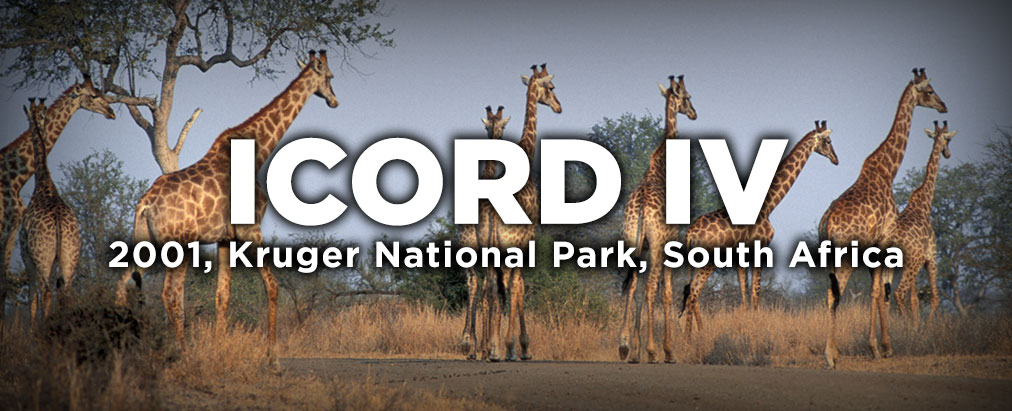
The fourth International Conference on Operations Research for Development (ICORD) was held from 16 to 18 May 2001 in the Berg-en-Dal camp of the Kruger National Park, South Africa. With the theme of “Fostering the use of Operations Research for Development”, the conference aimed to focus on problems in Africa. IFORS recognized that OR has yet to achieve its potential of helping foster development in the continent.
ICORD 2001 was co-sponsored by IFORS. An amount of 5000 US dollars was made available by IFORS as “seed” funds to assist delegates to attend the conference and to cover other expenses. On top of this ORSSA made R17 500 available. The NRF made R10 000 available while the Dept. of Arts, Culture, Science and Technology agreed to contribute to the expenses of five specified individuals. The conference attracted people from Kuwait (1), Malaysia (1), UK (4), USA (2), Canada (1), the Netherlands (1), Germany (2), Kenya (1), Tanzania (1), Zimbabwe (1) and India (6), with the rest coming from South Africa, mainly from Universities. The majority of delegates also presented either a paper or a tutorial.
The first and the last plenary endeavored to sketch the current State of OR in Africa and looked at a way forward. Different people contributed and as an outcome a short document was produced outlining a way forward. A small committee was formed that will drive this forward.
The following were agreed on and a committee comprising of Hans Ittmann, Philip Fourie, Jackie Phahlamohlaka and Leanne Scott will coordinate these on behalf of ORSSA:
Create a website of OR workers in Africa.
a. Compile address list of all OR people in Africa, outside South Africa. These are OR people, people active in OR and really interested in OR .
b. Encourage people from the rest of Africa to:
• contribute to ORSSA newsletter;
• attend ORSSA national conferences;
• submit articles to ORiON, the ORSSA journal.
c. Send copies of ORSSA newsletter and ORiON to people in Africa.
d. Establish “network” between people in Africa and get it working through collaboration on real and realistic projects. This will include industrial, governmental and “community” projects.
e. Endeavour to submit collaborative proposals for the EURO “Africa project”.
f. Investigate possibility of getting the latest OR text books to African universities.
g. Encourage students from African countries to utilize the capacity at South African Universities.
h. Provide information on OR education in South Africa.
Encourage exchanges between universities around training and sabbaticals (advertise opportunities in ORSSA newsletter).
a. Investigate the possibility of regional meetings where training can be provided (i.e. training in participatory approaches).
b. Investigate linking up with development agencies
c. Determine potential sources of funding for OR collaboration in various forms.
